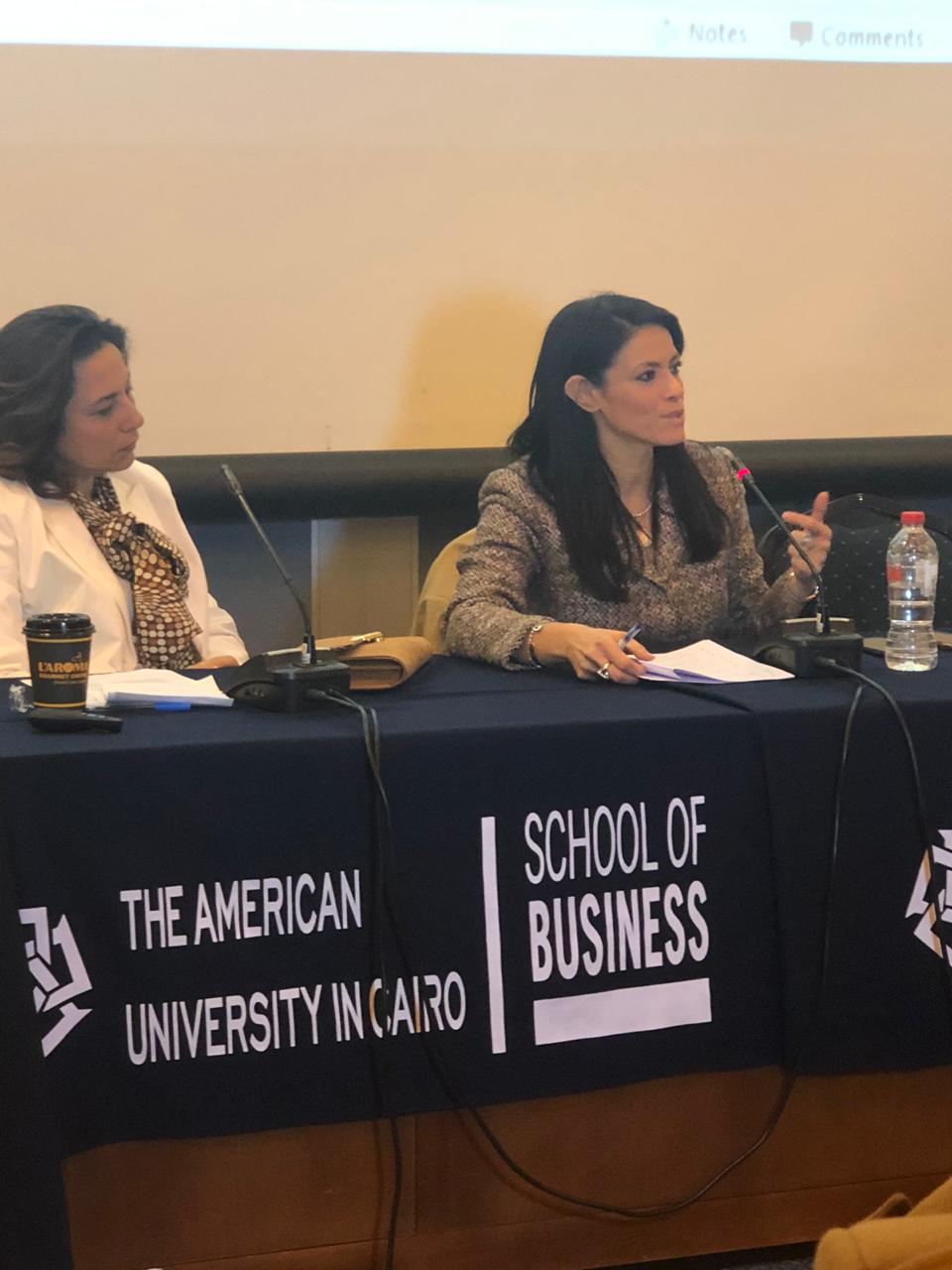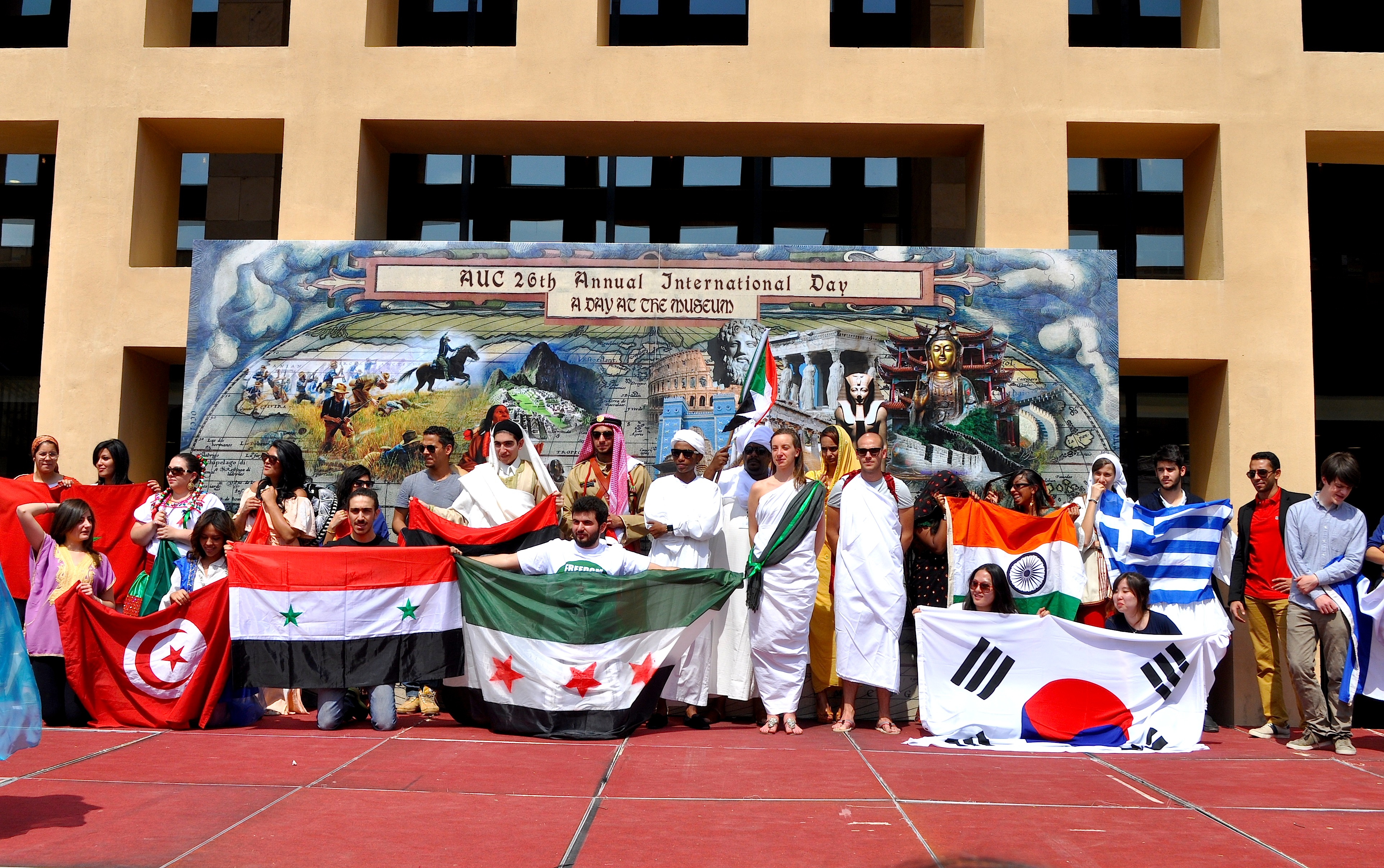Restructuring Tourism Key to Success, Says Al-Mashat at AUC
By: Sherif El Hakim
@sherifelhakim2
Minister of Tourism Rania Al-Mashat told a vibrant audience at Mary Cross Hall on February 28 that the key to making Egypt more competitive in the tourism industry is to meet international standards and to promote activities and destinations other than the Pyramids.
During her lecture “Changing the Narrative on Egyptian Tourism: Egypt-Tourism Reform Program” Al-Mashat explained that the importance of and reliance on the tourism sector is underestimated.
One in every 10 jobs around the world is in tourism, Al-Mashat said, while 10 percent of the world’s gross domestic product (GDP) comes from tourism and $925 billion in contribution to investment.
In Egypt, upgrading and reforming the industry is pivotal because at least one individual from each Egyptian household works either directly or indirectly in the tourism sector.
“Achieving a sustainable tourism sector [is done] through implementing structural reforms that strengthen the sector’s competitiveness and are in line with international standards,” Al-Mashat said.
In turn, Egypt’s tourism sector can become globally competitive if reforms are implemented.
The structural reforms, which fall under five pillars in tandem with other ministries, include: institutional reforms, legislative reforms, promotion and marketing, infrastructure and tourism development, and global tourism trends.
“These five pillars are set up and organized in order to achieve sustainability for the future. These five pillars plan on keeping the foundations solid for any potential downturns,” she added.
The ministry is also looking to sell Egypt as a destination in untapped markets.
Over 60 percent of tourists who visit Egypt are from Europe, therefore there are increased promotional efforts in new source markets, particularly Asia.
“We were too reliant on certain countries visiting, so when the revolution happened, we were not prepared, and the infrastructure was not in place. Now, we need to focus on other markets through different promotional marketing campaigns,” she said.
According to the United Nations World Tourism Organization (UNWTO), 2010 was the peak of Egypt’s tourism sector, with 14.7 million people visiting Egypt, but following the revolution in 2011, tourism took a serious hit, reaching a low of 5.4 million in 2014. However, the industry is now picking up and around 8.3 million people visited in 2017.
The ministry has begun to promote the opening of the Grand Egyptian Museum ‘GEM2020’, one of the largest museums in the world, located by the pyramids.
The GEM is the first museum in Egypt that will be operated by a private company and Al-Mashat believes this is key in offering high-quality service.
Furthermore, the ministry launched the People to People (P2P) campaign, portraying Egypt not only as a prime tourism destination but also shedding light on the diversity of the Egyptian people.
Showcasing Egyptians as pioneers of various disciplines (art, sports, music, culinary activities), P2P intends to shift tourists’ perception on one hand, and encourage community engagement on the other. The aim is to show that sustainable tourism is not just about places but about people.
Al-Mashat is the current Egyptian Minister of Tourism, the first woman to hold this position, and in 2014, the World Economic Forum named her a Young Global Leader for her commitment to bettering Egypt through her impactful work. Al-Mashat graduated from AUC in 1995 with a Bachelor of Arts in Economics.
The event was organized by the School of Business, as well as being moderated by Mona Said, associate professor & chair in the department of economics at AUC.




